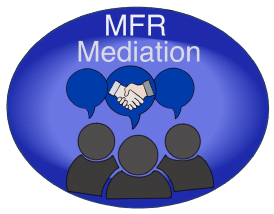It is important to understand how language and cultural differences can interfere with the successful resolution of a case during mediation.
Two years into my legal practice, my supervisor asked if I would rotate to a different unit with more serious cases. I, instinctively, said, “let me ask my pillow.” He looked at me perplexed and politely asked if I was having a mental breakdown. “I just need to think about it overnight,” I clarified. See? English speakers “sleep on things.” We, Spanish-speakers, “ask our pillows.” Subtle word and cultural differences can quickly cause a breakdown in communication.
Communication is the process of exchanging ideas, opinions, facts, and feelings. This exchange is necessary to any negotiation. A successful negotiation whereby parties walk away with a satisfactory agreement depends on how effective the parties communicate with each other. If a breakdown in communication occurs the negotiation may come to a halt, or worse, create more conflict.
In the world of conflict resolution, miscommunication and misunderstanding are common barriers to effective communication. A good mediator will work toward eliminating these obstacles enabling the parties to identify issues and explore mutually agreeable alternatives through meaningful communication. Language is the most common tool of communication, and language barriers are a root cause of misunderstandings.
Think of two people whose native languages are different and who speak and understand each other’s language at a very basic level. They can communicate but may encounter the common problem of false cognates. False cognates are words in one language that are similar in form or sound in a different language but are not etymologically related. A Spanish-speaking parent may tell you, “I was mad at my husband because he thinks it is our daughter’s choice to assist the school.” You may then ask, “what sort of help would your daughter provide?” The parent will be confused and will not deliver a logical answer because she meant that her husband believes it is their daughter’s choice to attend school.
The improper use of one word changed the entire meaning of the conversation. In English “assist” is to help, and to the parent, “assist” sounds very close to “asistir,” which in Spanish means to attend. I must confess that when my husband asks me to buy lemons I still pause and think, “green or yellow,” because in Spanish lime is “limón” and lemon is “lima.” These may seem like trivial illustrations, but the impact of these misunderstandings in mediations can result in an unnecessary impasse.
A mediator can attempt to overcome an impasse if there is a genuine disagreement in positions, but this is a challenging task when the issue is miscommunication due to language. Miscommunication certainly occurs when we speak the same language, but the likelihood of it occurring when language barriers and cultural differences are present increases significantly.
A mediator who speaks the same language as the litigants and understands the subtle cultural differences will maximize enhanced communication and minimize frustration due to things being lost in translation.

